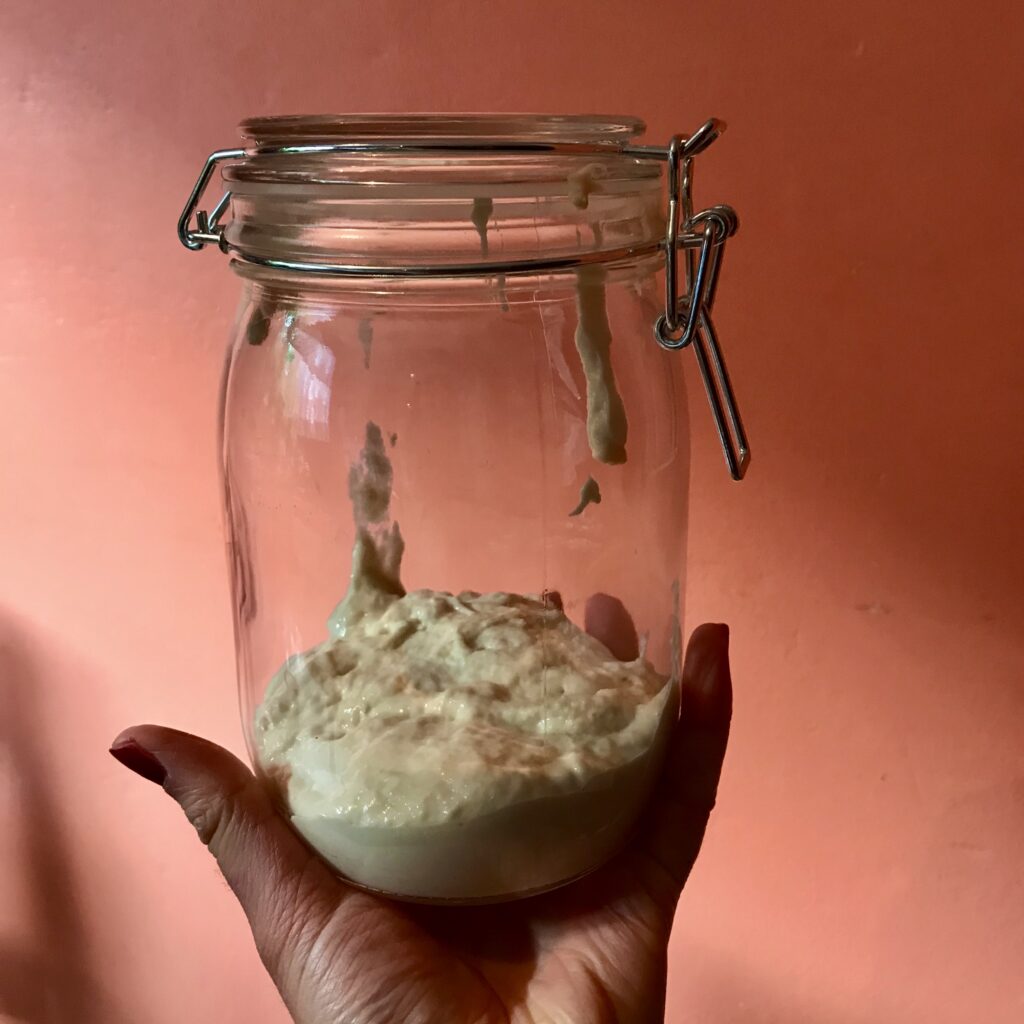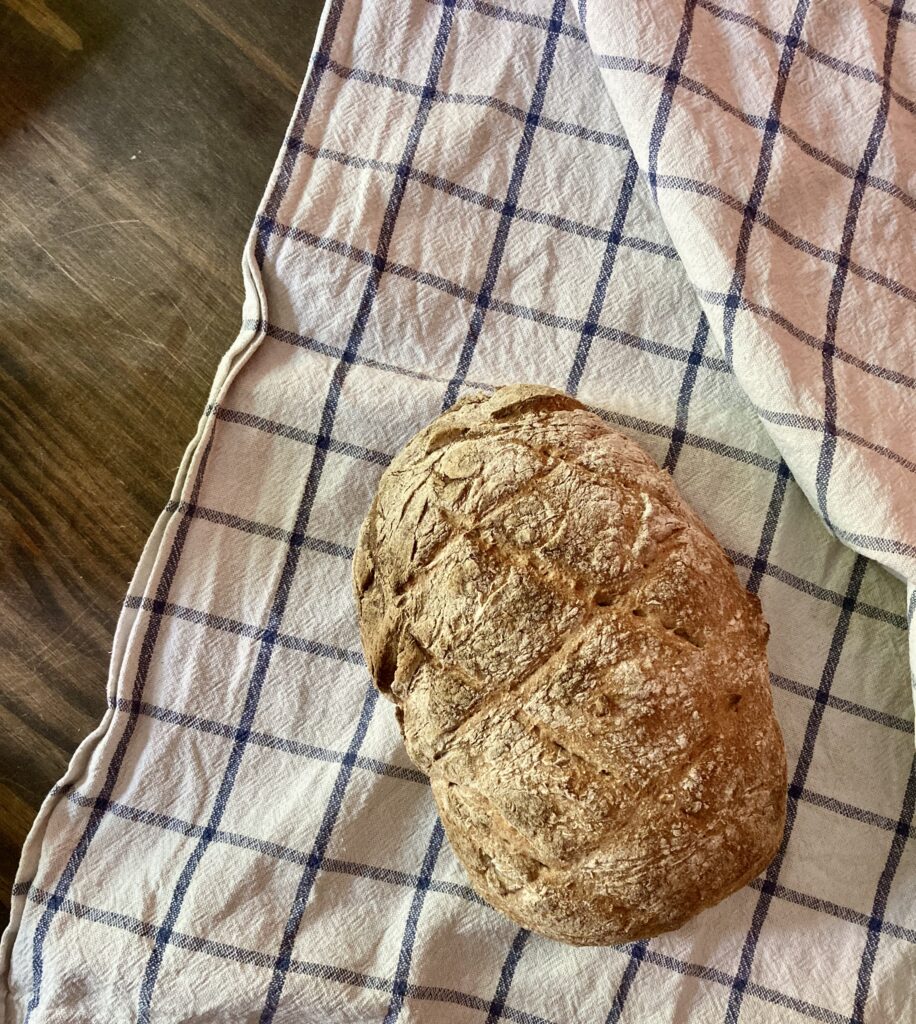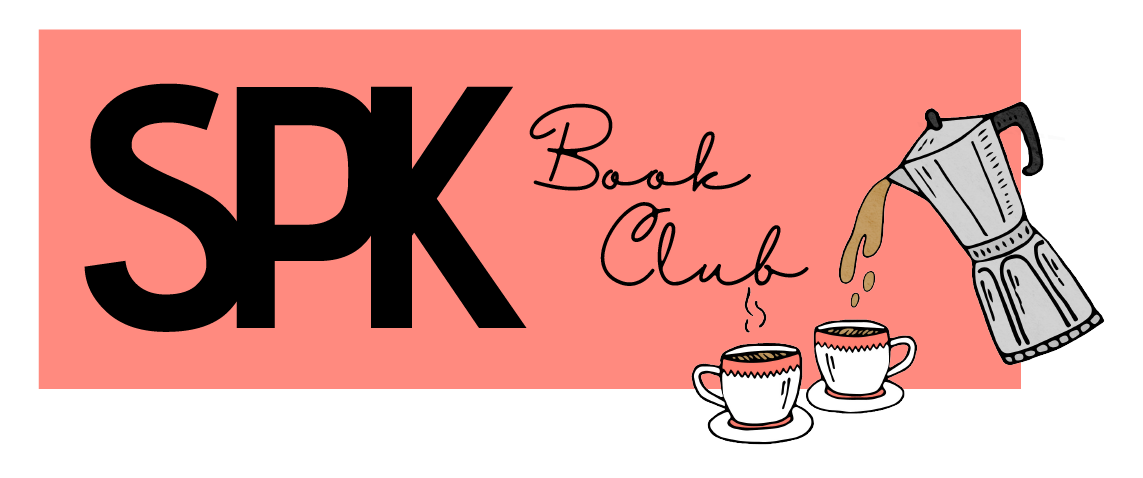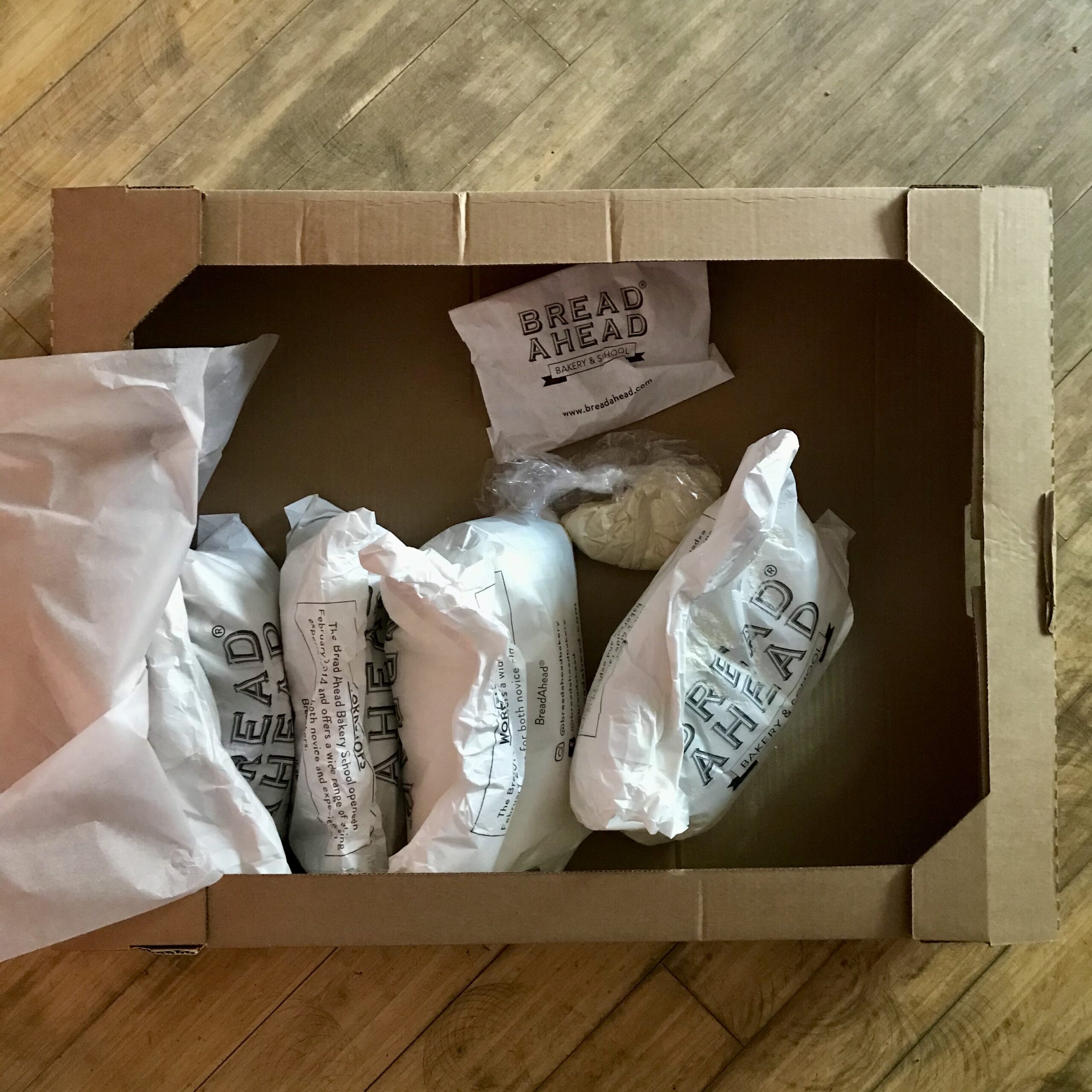This is not a recipe for sourdough starter nor an ode to having a sourdough starter. This is, however, a circling thought about what bread means to me and how being hand-delivered a sourdough starter changed the pace of my quarantine routine – a quarantine I’m experiencing in a country where I was not born. I did all the paperwork there is to do to stay in the United Kingdom because there is no place I’d rather be at this time in my life, even though it is the land where butter and Bonne Maman jam on baguette will never taste the same.
I had booked Friday 1st May 2020 off work, a mixture of tradition and need. I missed the white lilies and the sound of the unions. Instead I was surprised with another form of labour. A labour of love born from the thread of my own fingers. As I walked down to the kitchen to brew another pot of coffee, the doorbell rang. I threw myself outside, upbeat by the excitement of today – a surprise delivery. I found a previously unseen sight: a short, bald man holding over 7 kilograms of tenderness, a cushion to my 1st of May and to my global pandemic.
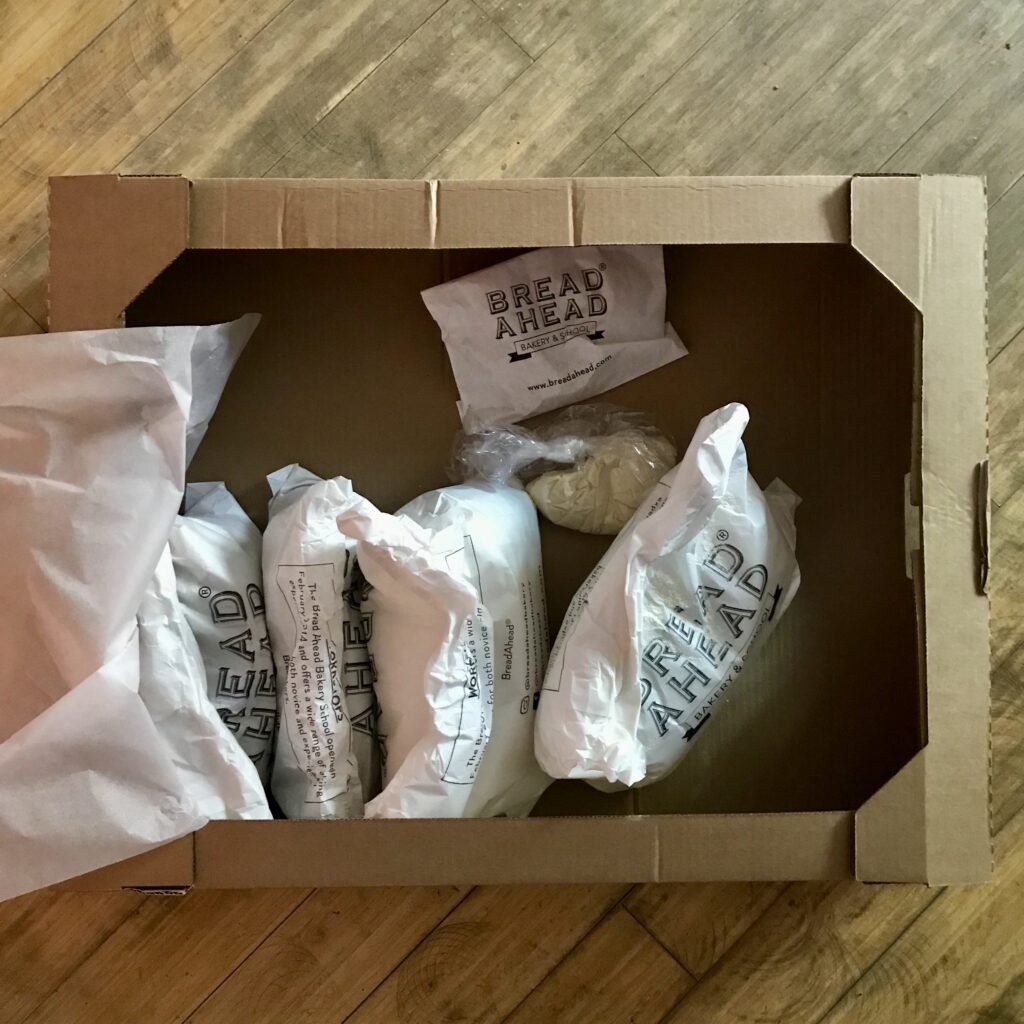
1 x 2 kg baker’s white flour
1 x 2 kg stoneground wholemeal flour
1 x 2 kg self raising flour
1 x 1 kg stoneground rye flour
1 x 50 g fresh yeast
My best friend had ordered a baker’s kit from Bread Ahead for me. In her words, you’ll knead and create and feed and make doughs rise while raising yourself. I jumped up and down in my kitchen, this huge box before my feet, a playground in the form of dust waiting to be made through kneading and baking. Thoughts streamed fast: I want to make focaccia and grissini for Annalisa, I want to make brioche to taste France, I don’t think I ever owned fresh yeast (it looks like fudge!), what about cinnamon buns, as if I were with Irene sitting on one of the comfy sofas at Söderberg on Berwick Street? It is only then that I noticed the small plastic bag, hidden in a corner of the box. Have you watched Flubber, the movie from 1997? It was a childhood favourite of my brother and me: both laughing out loud at Robin Williams’s facial expressions, being taught how a fun-like experiment can quickly turn into a nightmare. The box also contained 100g of sourdough starter.
I must not kill this sourdough starter. I was hit by a sudden, renewed sense of responsibility. I read through the Internet about how much and how often to feed my Flubber – this jar bubbling up and down, ever hungry. I studied how it produces natural yeast, I educated myself about the chemistry of bread, I learnt about the lactobacilli. There is a virus outside, sweeping lives away, terrorising our systems of class, politics and everyday sense of order, and I am home cultivating a bacteria of my own. Because I am too scared to walk to the bakery. Because everyone else seems to be doing the same. I sent a picture of my sourdough starter to my mother and she did not reply. I then told her I made cookies and banana bread from the sourdough discards – it produces so much waste every day. She complimented me for that.
When I go back to France to visit my mother, there is bread waiting for me on the kitchen counter. Maman adores bread. She launches herself into each new day with a piece of bread and she always has, for as long as I can remember. From the age of 8, I grew up with a single mother, with the help of my single grandmother. We traced our wealth in comparison to the price of bread. My grandmother did the school runs and once a week we stopped at the bakery for a special goûter – a.k.a. a chocolate twist. I can distinctly hear the noise of small coins clicketing against my grandmother’s manicured fingers, extracted from her orange, worn-out leather wallet. We stopped at the same boulangerie each week, even though ‘c’est plus ce que c’était avant.’ The bread has become lighter and more expensive over the years. Yet we never made bread ourselves.
A year or so from the day I moved to London, I grew exhausted. I struggled to make friends and to find the people I met funny in a language I was still learning. I found myself uninteresting, not capable of arguing about anything other than the weather. I found the weather grey and missed the rhythm new vegetables and fruits in the grocery shops give to seasons. I was finalising my dissertation for university while driving through the country in an ice cream van for a student job, while also working in ephemeris bars and cafés and other food units. I laughed out loud the day my then British boyfriend told me that I worked in the hospitality industry. It sounds so clinical to me: hospital-ity. The voice of the old men telling me to keep the change of their pint and burger along with a dirty joke, like a sharp knife meeting my skin. The smell of fries, over my hair, my bedsheets, my towels. Everywhere. I kept one day a week free from shifts for my university dos, when I spent the entire day at the British library, in the coolness and quietness of the reading rooms. The signs instructing us to keep quiet for cushion. I adored the sound of the archive books’ pages running against people’s fingers and the fact I did not have to talk for the entire day. I always took the long way home: a short walk towards Euston Square and on to the bus 253. I turned my back to the Eurostar terminal at Saint Pancras station, heading to my new home in Clapton. On the bus there was nothing else for me to do apart from resting my eyes, patiently waiting for my stop – except I did not stop at home. I got off 3 stops early, landing in front of my favourite deli in London. They have a range of fresh breads. I bought a baguette from the ever-friendly woman at the counter. She too has an accent. And I walked towards my flat, snacking on bread. It is then that I smiled: my anxiety caught in the safety net of breadcrumbs. When my mother visited me that summer, we went to buy bread together for her breakfasts. ‘Délicieux leur pain, franchement,’ she said. It tastes even better now.
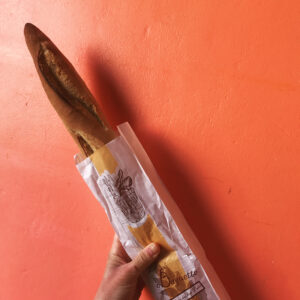
It’s now a few years later and I only have one full-time job to worry about, poised by how stable I am, materially speaking, during this pandemic. I’m able to work from home, live in a comfortable house and can afford its rent every month. Mum is back in France, less able to work than I am. And I am baking my first sourdough bread. I have fed my mother starter every 12 hours; I started folding the dough the night before. I followed steps, I did not respect measurements. What has carried me forward is the thought of breaking bread with my flatmates – the reassurance that this bread will still be about sharing a moment, with myself along the way as I bake and then with the ones I love as we eat. I sent a picture of my sourdough to my mother as soon as I took it out of the oven; she replied in a split of a second: ‘ouah !!!’ It is one of the most genuine texts maman ever sent me, as if we were again young mother and daughter, having breakfast together in our flat on top of a tower in the North suburb of Paris. The noise of bread crumbs being crunched only between us.
Pierre Kropoktine published La Conquête du Pain in 1892, arguing in favour of an anarcho-communist society built on mutual aid. I found myself reading parts of it again when I joined my neighbourhood’s ‘covid-19 mutual-aid group’ on WhatsApp. Little pockets of independent, hopeful activism where we run to the pharmacy for strangers, drive school meals to homes, share recipes to feed families we never met. The first organic and autogéré bakery in Paris was named La Conquête du Pain. There is always an old lady holding a baguette when I go to a protest – or at least in my head, I picture one. Pain in English means bread in French. While we go through a global pandemic, seeing numbers I never had to say out loud before turn into death counts, while most of us fear not to be able to afford a baguette anymore, as Corbyn stepped down to leave room for a more centrist – withdrawn – version of himself, while I feel unsafe in the country where I worked so hard to establish my home, I now make my own bread. Or at least, I feed a bacteria that could become bread if I wanted to. Flubber is bubbling some more and it smells both yeasty and sweet and it has given me a safety net.
I do not know when I will be able to blissfully snack on bread as I walk home again. What I do know is that, in the meantime, I will continue to feed my Flubber: it is alive and there will be more bread to share. When I can cross the border again, I will take a cup of my sourdough starter to maman. We will kill it together and walk to the bakery, moaning about the price of bread while snacking some more, moaning at how good it is.
Margaux, May 2020
